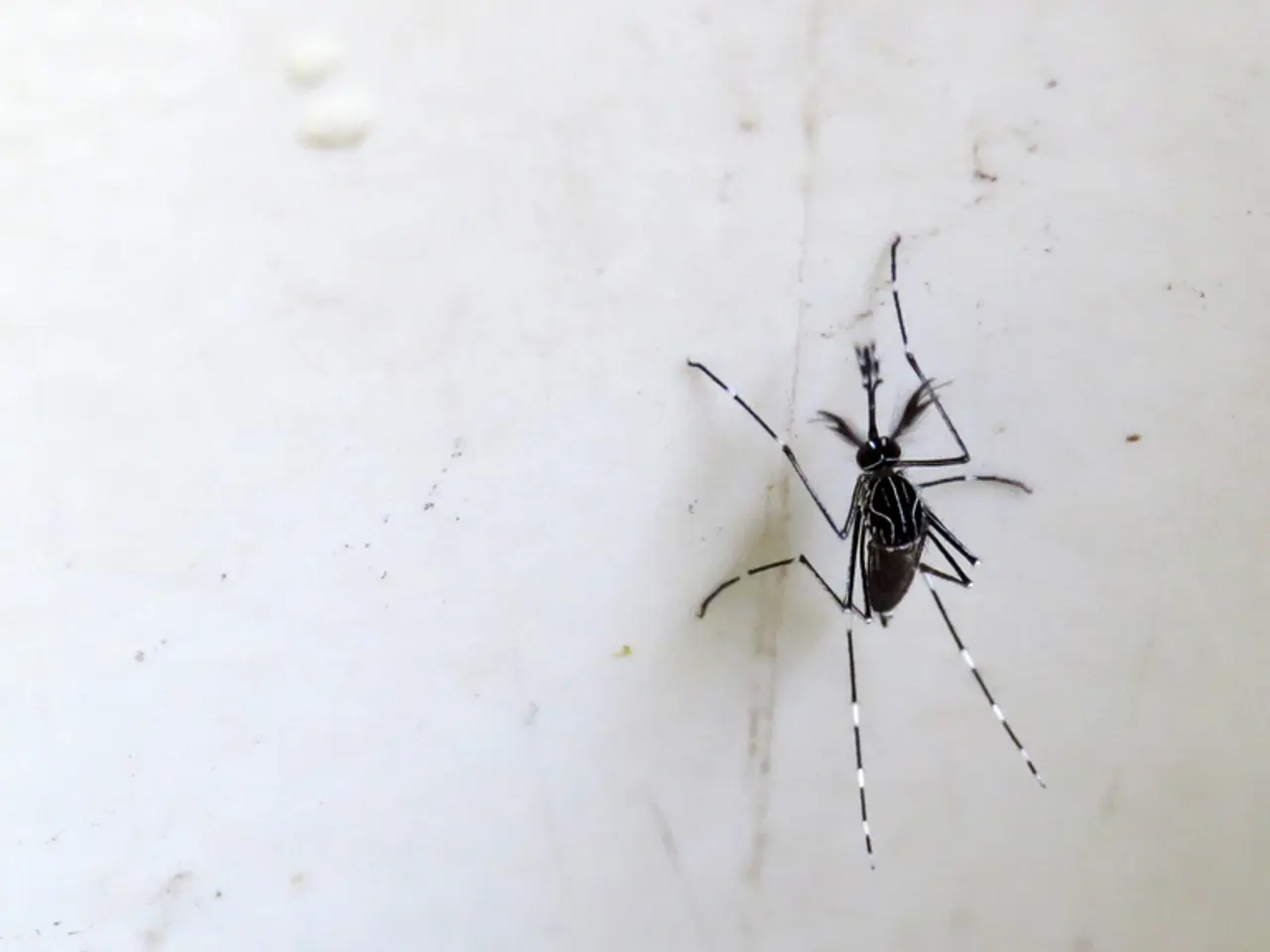Insect-borne illnesses: Classification, indicators, and cures for mosquito viruses
Mosquito-borne diseases pose a significant threat to public health, particularly in tropical and subtropical regions. These diseases, which include the West Nile virus, Zika, dengue, yellow fever, chikungunya, Japanese encephalitis, and La Crosse virus (among others), can cause outbreaks that overwhelm healthcare systems and lead to fatalities.
Prevention is the most effective weapon against these diseases. By taking simple precautions, individuals can significantly reduce their risk of infection. These precautions include vaccinating where possible, using insect repellant, covering skin, ensuring windows have screens, removing standing water near properties, and taking other measures to limit mosquito breeding.
The West Nile virus is the cause of mosquito-borne illness in the continental United States. It is primarily spread by Culex species mosquitoes and can cause encephalitis, which includes symptoms such as headache, fever, and confusion. Although most people who contract the West Nile virus do not develop symptoms, around 1 in 150 people develop severe illness.
Chikungunya, another mosquito-borne disease, can cause lifelong morbidity, chronic suffering, and disability. It is transmitted through Aedes mosquitos, particularly Aedes aegypti and Aedes albopictus. Symptoms of chikungunya may include joint pain, fever, rash, headache, and fatigue. While chikungunya does not cause death at the same rate as other viruses in this article, it can lead to significant discomfort and long-term health issues.
If a person experiences symptoms after being in an area where mosquito-borne diseases are common, they should contact a doctor. There is no specific treatment for mosquito-borne diseases, and antibiotics are ineffective against their viruses. Most people recover completely from these diseases after managing symptoms for a short period.
However, pregnant people should take particular care when it comes to Zika. If a pregnant person may have had exposure to Zika, they should consult a healthcare professional, even if they do not display symptoms. Zika can cause birth defects in babies, and it is crucial to take precautions to avoid infection during pregnancy.
In summary, mosquito-borne diseases can be fatal, so people should take precautions against them. By understanding the diseases, their vectors, and the precautions that can be taken, individuals can protect themselves and their families from these potentially dangerous illnesses.
| Disease | Virus / Pathogen | Mosquito Vector | |-----------------------|-------------------------|------------------------------| | Dengue | Dengue virus | Aedes aegypti, Aedes albopictus | | Chikungunya | Chikungunya virus | Aedes aegypti, Aedes albopictus | | Yellow fever | Yellow fever virus | Aedes aegypti | | Japanese encephalitis | Japanese encephalitis virus | Culex mosquitoes | | West Nile virus | West Nile virus | Culex mosquitoes | | Zika virus | Zika virus | Aedes aegypti, Aedes albopictus | | La Crosse virus | La Crosse virus | Mosquito species (varies) | | Malaria (parasitic) | Plasmodium spp. (parasite) | Anopheles mosquitoes |
This overview synthesizes authoritative information from recent sources summarizing the principal mosquito-borne viral diseases and their mosquito vectors. By staying informed and taking simple precautions, individuals can significantly reduce their risk of infection and protect themselves from these potentially dangerous illnesses.
[1] Centers for Disease Control and Prevention. (2021). Mosquito-borne diseases. https://www.cdc.gov/mosquitoes/diseases/ [2] World Health Organization. (2021). Mosquito-borne diseases. https://www.who.int/news-room/fact-sheets/detail/mosquito-borne-diseases [3] National Institute of Allergy and Infectious Diseases. (2021). Mosquito-borne diseases. https://www.niaid.nih.gov/diseases-conditions/mosquito-borne-diseases [4] American Mosquito Control Association. (2021). Mosquito-borne diseases. https://www.mosquito.org/mosquito-borne-diseases/
If one encounters symptoms such as fever, headache, or joint pain after being in areas where mosquito-born diseases are common, a medical consultation is advisable. Vaccinating, using insect repellant, and taking other measures to limit mosquito breeding, as stated by the CDC, WHO, NIAID, and AMCA, can significantly reduce the risk of developing such health-and-wellness issues such as West Nile virus, dengue, Zika, yellow fever, chikungunya, Japanese encephalitis, La Crosse virus, and malaria.




